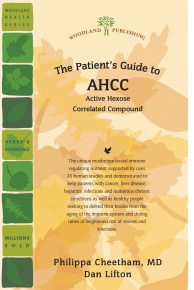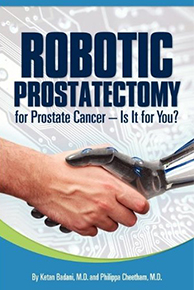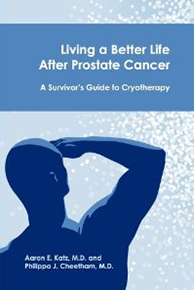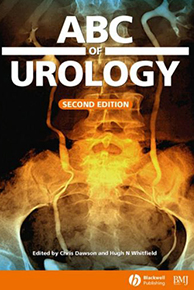Dr. Cheetham's recent radio interview
Hear Dr. Cheetham's recent radio interview which kicked off the launch of her TV show, Cure Connections!"

To Make Appointments (646)645-3698
Board-certified, fellowship trained Urological Surgeon with private practices in Manhattan, Queens & Long Island.
Book an appointment!
Upper Manhattan Office:
944 Park Avenue
(corner of 82nd St)
New York, NY 10028
Tel: (646) 645-3698
pcheetham@doctors.org.uk
Long Island Office:
200 Old Country Road
Suite 260
Mineola, NY 11501
Tel: (646) 216-7979
Fax: (646) 216-7978
Queens Office:
99-01 Queens Blvd
Rego Park, Queens
Tel: (646) 216-7979
Fax: (646) 216-7978
Attitudes towards natural medicine are polarized in America. On the one side, conventional medical doctors are often quick to dismiss herbal and nutritional therapies as unscientific, unproven and even unsafe. On the other side, advocates of natural medicine accuse conventional medicine of taking a slash-and-burn approach that hurts more than it helps.
I believe there’s a place for both, which is why I practice integrative medicine. This branch of medicine combines, or integrates, both schools of thought. It takes the best scientific and technological advances of conventional medicine and incorporates them with traditional and scientifically validated alternative therapies, such as dietary supplements and acupuncture.
My personal approach to integrative medicine is simple. I like to use natural medicine for the daily prevention of disorders such as heart disease and the treatment of chronic, slow-progressing conditions like prostate cancer. And I choose to employ aggressive allopathic therapies, like surgery or radiation, only when absolutely necessary.
Philippa J. Cheetham, M.D., a board-certified Urological Surgeon from the United Kingdom (UK).
I first saw Dr. Cheetham in early 2009 when I was diagnosed with prostate cancer and was wavering about having surgery. She quickly grasped the seriousness of my situation and motivated me to have surgery. I had no time to spare. Dr. Cheetham saved my life. She has followed me for the last five years with superior concern, thoroughness, skill and attention to me as a person. I cannot give her a high enough rating.
Submitted to ZocDoc on February 21, 2014
Dr. Cheetham is one of the few doctors that I have experienced that is willing to spend enough time with you to explain your problems and solutions. Her office help is very professional and most helpful. I've seen Dr. Cheetham 4 times as of today and everytime she sees me on the appointed office visit time with little or no waiting. She has a wonderful personality and shows concern for your problems. Thank you Dr. Cheetham.
Submitted to ZocDoc on February 15, 2014
Dr. Cheetham is an amazing doctor! I was referred to Dr. Cheetham in June 2014 for testicular cancer. I was a nervous wreck up until I met her. Dr. Cheetham walked into the examining room like my wife and I had known her for years. She met with us and literally drew out the procedure that I was going to have. We had so many questions and she just sat with us for what seemed like hours. Her caring nature immediately put me at ease...I could not recommend a better doctor.
Submitted to Rate MDs on November 11, 2014
I was recently referred to Dr. Cheetham without a clue what to expect. Upon my first conversation with her I quickly realized she is truly unique. Her listening skills are extraordinary, her knowledge vast, her social skills comforting, always accessible, and more importantly she prescribed an approach that corrected my issue over time. I feel incredibly fortunate to have met her and trust her judgment immensely. I've also learned a great deal from her clinically, particularly from her Sunday radio show/podcasts on WABC. She's innovative and a master in her field. I would highly recommend Dr. Cheetham!
Submitted to Rate MDs on November 6, 2014
Dr Cheetham is one of the most compassionate, caring and most competent doctors I have ever met. I have never won the lottery but I feel like I have. I would highly recommend her to anyone with urology issues.
Submitted to Rate MDs on March 2, 2014
Dr Cheetham is amazing. She is caring , attentive and make your health and well bring her personal priority . Could not think of a better physician and I strongly recommend her to anyone needing her specialization.
Submitted to Rate MDs on February 19, 2014
My experience as a patient with Dr.Cheetham was excellent. I have been to a number of doctors and specialists over the years and I have never had such an informative and satisfying experience. Her extensive knowledge is only exceeded by her ability to communicate, both verbally and graphically. I highly recommend her.
Submitted to Rate MDs on February 16, 2014
Dr. Cheetham is one of the few doctors that I have experienced that is willing to spend enough time with you to explain your problems and solutions. Her office help is very professional and most helpful. I've seen Dr. Cheetham 4 times as of today and everytime she sees me on the appointed office visit time with little or no waiting. She has a wonderful personality and shows concern for your problems. Thank you Dr. Cheetham
Submitted to Rate MDs on February 15, 2014
S Wenske, PJ Cheetham, AE Katz
Journal of Analytical Oncology 2013 (Vol 2) No 2 p120-7
PJ Cheetham and DP Petrylak
The Cancer Journal. Special Edition on New Agents for Prostate Cancer 2013 19 (1) p59-65
PJ Cheetham
AUA news December 2012 edition pages 11-12 Guest Editor Gopal Badlani.
PJ Cheetham and DP Petrylak
Eur Urol. 2012 Apr;61(4):850
PJ Cheetham and DP Petrylak
Oncology 2012 Apr;26(4):330-7, 341.
PJ Cheetham and DP Petrylak
Accepted for publication in AUA news December 2011. Published in May 2012 p31
Monographic: Clinically localized prostate cancer: current approaches and options
PJ Cheetham and Aaron Katz.
Arch Esp Urol. 2011 Oct;64(8):720-34
MS Pitman, PJ Cheetham, GW Hruby AE Katz.
Accepted for publication Journal of Urology April 2011.
J Capodice, PJ Cheetham, MC Benson, JM McKiernan, AEKatz.
International Journal of Clinical Medicine 2011;2(1):51-55.
B Djavan, AKazzazi, L Dulabon, S Momtahen, S Dianat, M Sand, P Cheetham, G Janetschek, HLepor, MGraefen.
Accepted European Urology March 2011.
R Djavan, M Garnick, J Eastham, L Gomella, S Taneja, S. Dianat, A Kazzazi, N Shore, P Abrahamson, PJ Cheetham, JW Moul, H Lepor, D Crawford.
Submitted to Journal of Clinical Oncology March 2011.
PJ Cheetham, DJ Lee, A Rose-Morris, SF. Brewster, KK. Badani
Journal of Robotic Surgery 2010;4(3):155-160.
M Truesdale: PJ Cheetham, A Turk, S Sartori, G Hruby, E Dinnen; MC Benson, K Badani.
BJU Int. 2010 Sep 14. doi: 10.1111/j.1464-410X.2010.09570.x. [Epub ahead of print]
P Cheetham, M Truesdale, S Chaudhury, S Wenske, GW Hruby, A Katz.
J Endourol. 2010 Jul;24(7):1123-9.
DJ Lee, PJ Cheetham, KK Badani.
Can J Urol 2010; 17(3): 5200-5.
S Wenske, PJ Cheetham, S Stevenson, M Truesdale, G Hruby, AE Katz.
Accepted Journal of Clinical Oncology. In Press.
MD Truesdale, DJ Lee, PJ Cheetham, GW Hruby, AT Turk, KK Badani.
J Endourol. 2010 Jul;24(7):1055-60.
PJ Cheetham, MD Truesdale, DJ Lee, JM Landman, KK Badani.
J Endourol. 2010 Jul;24(7):1091-6.
M Truesdale, PJ Cheetham, G Hruby, A Conforto, A Cooper, A Katz.
Accepted Journal of Cancer Jan 2010. In Press.
DJ Lee, PJ Cheetham, KK Badani.
Accepted Online Early - BJU-2009-0561 Aug [Epub ahead of print].
PJ Cheetham, DJ Lee, KK Badani.
J Urol 2009:181(4):363.
M Aslam, PJ Cheetham, MAW Miller.
Nat. Rev. Urol 2009;6:398–402.
PJ Cheetham, S Stevenson, Z Saeed, AE Katz.
Submitted to Journal of Urology August 2010.
PJ Cheetham, S Stevenson, Z Saeed, AE Katz.
Submitted to American Journal of Transplantation August 2010.
PJ Cheetham, M. Truesdale, J Landman, K Badani.
Submitted Journal of Urology - under review.
PJ Cheetham, KK Badani.
Accepted publication De Historia Urologiaeae Europaeae EAU - Sept. 2009.
PJ Cheetham.
BMJ 2006;9:774-791.
PJ Cheetham, S Mc Donnell, SF Brewster.
BMJ 2006.
PJ Cheetham, K Le Monnier, SF Brewster.
Prostate Cancer and Prostatic Diseases 2001; 4, 235-241.
PJ Cheetham, O Espinota, DC Cranston.
Online BJUI webcasts.
P Modi, J Pleat, PJ Cheetham, J Senior, R Johan & G Fellows.
Ann R Coll Surg Engl 2000; 82:333-335.
PJ Cheetham & WH Thomson.
Br J Surgery.
PJ Cheetham, J Reynard, AF Brading.
PJ Cheetham, P Guy, J Reynard, AF Brading.

By: Philippa Cheetham, M.D. and Dan Lifton
AHCC (active hexose correlated compound) is a unique immune-building supplement made from components of shiitake and other medicinal mushrooms. But AHCC is much more than just a mushroom! Written by Dr. Cheetham and Dan Lifton, Director of the AHCC Research Association, this booklet discusses extensive research—more than 20 human clinical studies—supporting AHCC's beneficial properties. The booklet focuses on AHCC as a complement to conventional cancer treatments, but AHCC can help the body manage other immune-related disorders.

By: Philippa Cheetham, M.D. and Ketan Badani M.D.
In this book, Robotic Prostatectomy for Prostate Cancer — Is It For You?, board-certified Urologists Dr. Ketan Badani, MD and Dr. Philippa Cheetham, MD from Columbia University Medical Center, New York educate the patient and his family on prostate cancer and the role of robotic prostatectomy — the curative robotic surgery operation that allows the surgeon to remove the whole prostate gland using the state of the art DaVinci surgical robotic system.

By: Philippa Cheetham, M.D. and Aaron E. Katz, M.D.
In Living a Better Life After Prostate Cancer - A Survivor's Guide to Cryotherapy, board-certified urologists Dr. Aaron Katz and Dr. Philippa J. Cheetham from Columbia University Medical Center New York educate the patient and his family on prostate cancer and the role of prostate cryotherapy. This book should be on the shelf of any man who is concerned about his prostate and is an essential read before deciding on treatment options for those who have been diagnosed with prostate cancer.

By: Chris Dawson, Hugh N. Whitfield.
Chapter 6, "Management of Urinary Tract Infection in Adults", by Dr. Philippa Cheetham
Hear Dr. Cheetham's recent radio interview which kicked off the launch of her TV show, Cure Connections!"
Dr. Cheetham discusses aspartame and your health.
Dr. Cheetham discusses the FDA's recent decision on "Female Viagra"
Dr. Philippa Cheetham discusses the idea of purposely exposing children to Measles on Fox.
Dr. Cheetham talks about Ebola with Bill O'Reilly.
Dr. Cheetham discusses advancements in cancer treatment drugs on The Willis Report.
Dr. Cheetham discusses the work of Mollie's Fund, an organization dedicated to Melanoma Awareness & Education.
Urologist Dr. Philippa Cheetham talks with NBC about Prostate cancer prevention.
Dr. Philippa Cheetham debunks common myths about Prostate cancer on NBC.
Active Hexose Correlated Compound (AHCC) is one the world’s most researched natural immune-modulating compounds. Derived from mycelia (roots) of hybridized Lentinula edodes shiitake mushrooms, AHCC is very rich in acetylated alpha-glucans – a type of carbohydrate shown to modulate the immune system. Unlike other glucan-rich compounds, AHCC also has very low molecular weight of just 5000 Daltons, making it highly absorbable in the body.
AHCC is supported by 30 studies published in PubMed-referenced journals (reputable peer-reviewed publications whose scientific integrity is validated by the National Institutes of Health). Numerous human clinical studies show that AHCC increases the activity of important white blood cells (including Natural Killer Cells, T-Cell and Dendritic Cells) responsible for helping the body rid itself of abnormal and tumorous cells. AHCC has also been shown to help down-regulate an overactive immune system (helping support the body’s normal response to inflammation) so it functions as an "immune regulator" – not just a "booster".
AHCC is used in over 1000 clinics in Japan, Asia and the U.S. as a complementary immunotherapy for cancer patients, people with viral and non-viral hepatitis and immune-compromised individuals, including post-surgical patient and the elderly whose immune systems deteriorate with age. Importantly, AHCC has an excellent safety profile supported by strong data and having a long history of use. References to all AHCC studies can be found at www.AHCCresearch.com.
According to significant clinical evidence, diets rich in broccoli have been shown to help reduce the risk of many forms of cancer. Possessing anti-inflammatory properties, broccoli has also been found to promote the reduction of PSA levels.
In addition to taking supplements, taking a daily multivitamin filled with essential vitamins and minerals is also necessary to maintain overall health.
Flaxseed contains Omega-3 fatty acids and has outstanding benefits on the human body. The lignans in flaxseed may provide some protection against cancers that are sensitive to hormones such as breast and prostate. Lignins are phytoestrogrens- active substances derived from plants. Phytoestrogrens can help balance hormone levels by blocking enzymes involved in hormone metabolism. They can also interfere with or stop the growth and spread of tumor cells. Results have shown that 25 men with prostate cancer who took flaxseed had significantly reduced serum testosterone, slower growth rate of cancer cells, and increased death rate of cancer cells.
Lycopene is what gives tomatoes, watermelon, pink grapefruit, apricots and other red fruits and vegetables their red color. This pigment acts as an antioxidant in the body, protecting cells against damage from the free radicals formed when body cells burn oxygen for energy. A number of studies have demonstrated that men who get more lycopene in their diet have less risk of prostate cancer and an increase in energy. Lycopene is better absorbed by the body when it is consumed in cooked tomato products, rather than fresh tomatoes.
Derived from the pits of citrus fruits, Modified Citrus Pectin (MCP) promotes optimal cellular health. Scientific research has also shown that MCP can support prostate and breast health. Unlike regular pectin, MCP is easily absorbed in the bloodstream. When absorbed, MCP can bind to and block large amounts of harmful proteins called Galectin-3, which are found in abnormal cell division. Therefore, MCP can sustain cellular growth and proliferation.
Omega 3 fatty acids in fish oil provide unlimited health benefits. Since they are not naturally present in the body, scientific research has shown the necessity of these acids, particularly for the sustenance of the eye, brain, heart and kidney. In addition, growing evidence shows that Omega 3 fish oil can prevent the growth of certain cancers, as it stops the alteration from a normal cell to a cancerous mass.
There are a multitude of recent studies showing that the pomegranate contains compounds which may have protective effects against prostate cancer. These antioxidant compounds called polyphenols have been shown to be capable of stopping the spread of cancer by killing off infected cells.
Vitamin D3 plays a key role in overall health. Stored in the body’s soft tissue, it maintains a strong immune system, supports bone health and protects against muscle weakness. Since it promotes a healthy immune function, vitamin D3 can also lower the risk of certain cancers, including colon, breast and prostate cancers.
Zyflamend is an anti-inflammatory herbal supplement, which promotes a healthy inflammation response as well as normal cellular and joint function. Clinical studies show that this product can prevent certain cancers by reducing the growth of abnormal cells.
Green tea plays a major role in oriental diet, which may explain low risk of prostate cancer in Japanese men. It contains polyphenolic compounds, which have been suggested to decrease risk and slow progression of prostate cancer. In addition, green tea contains a very potent antioxidant EGCG – epigallocethecin-3-gallate. Studies have shown a significant reduction in incidence of prostate cancer in men with precancerous changes (high grade PIN) who drink green tea.
A high concentration of a protective compound called resveratrol is found in red wine, particularly Pinot Noir. Resveratrol, a powerful antioxidant found in wine, grapes and berries, can slow the growth of prostate tumors. Researchers at the University of Alabama discovered that mice that consumed resveratrol were significantly less likely to develop prostate cancer. Red wine has about 1.5 to 3 milligrams of resveratrol per liter (a liter is almost 34 ounces).
Deeply colored red and purple fruits, such as pomegranates, are rich in ellagitannins and other compounds, which have anti-oxidant and anti-inflammatory actions in the body. Ruby red pomegranate seeds (the arils) contain numerous chemicals that have all been found to inhibit cell growth spurred by testosterone which usually drives prostate cancer. One study found that men who drank pomegranate juice after being diagnosed with prostate cancer prolonged PSA doubling time significantly.
There is increasing evidence that heterocyclic amines found in cooked meat are crucial carcinogens that have been implicated in the development of a number of cancers. Particularly harmful compounds are:
These compounds act on DNA causing subsequent instability and mutagenesis. More than 22 studies on diet and prostate cancer have demonstrated that the more red meat a man eats, the higher his risk of developing the disease.
Read this CNN Health article for more information.
Like your meat sizzling in a pan? You may want to reconsider: A new study finds that pan-fried meat may be associated with an increased risk of advanced prostate cancer.
Announced on Thursday August 16 2012, the study found that men who ate more than 1.5 servings of pan-fried red meat per week were 30 percent more likely to have advanced prostate cancer than those who rarely ate it.
Also, men who ate more than 2.5 servings of red meat cooked by any high-temperature method, such as broiling and grilling, had a 40 percent increased risk of advanced prostate cancer compared with men who rarely ate meat cooked at high temperatures.
To reach their findings, study researcher Mariana Stern and her team surveyed men in California, examining the red meat-eating habits of nearly 1,900 prostate cancer patients and 1,096 men without prostate cancer.
Researchers say more work needs to be done before making dietary recommendations but advise men to limit their intake of pan-fried meat, "to be on the safer side," said Stern, an epidemiologist at the University of Southern California's Keck School of Medicine. The findings were published online in the journal Carcinogenesis.
Cooking Method Matters
Red meat cooked at high temperature is thought to increase the risk of advanced prostate cancer due to compounds called polycyclic aromatic hydrocarbon (PAHs) and heterocyclic amines (HCAs). PAHs form when fat is cooked at high temperatures - when rising smoke from dripping fat leave PAHs deposits on the meat. HCAs form when sugars and other molecules in the meat are heated - and higher temperatures and longer cooking times cause more HCA to form, the researchers noted. Previous studies have yielded mixed results - some have shown a link between eating red meat and prostate cancer, and others found no increased cancer risk.
Nearly 11 million women in the United States are given antibiotics for urinary tract infections (UTI). Affecting four in five women, UTIs are the second most common reason for absenteeism at work and 80 percent of all women will experience a UTI in their lifetime. Recurrent UTIs can be especially harmful for women if they find themselves on multiple courses of antibiotics year-round.
Antibiotics can also increase a woman's odds of additional infections, antibiotic resistance and yeast infections – all of which can erode the immune system. Prevention of UTIs is often your best course of action – Try to incorporate these natural solutions into your daily routine: